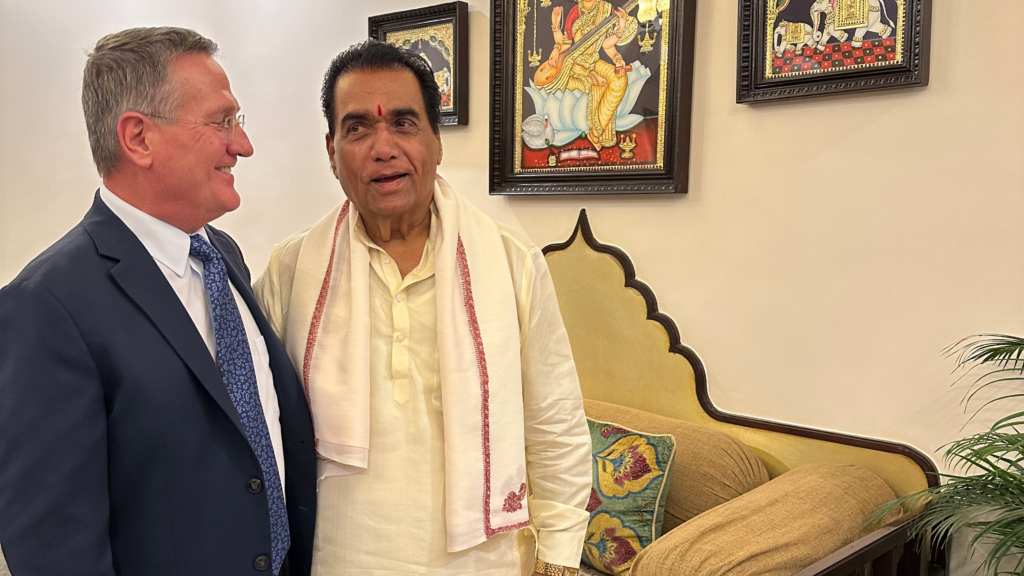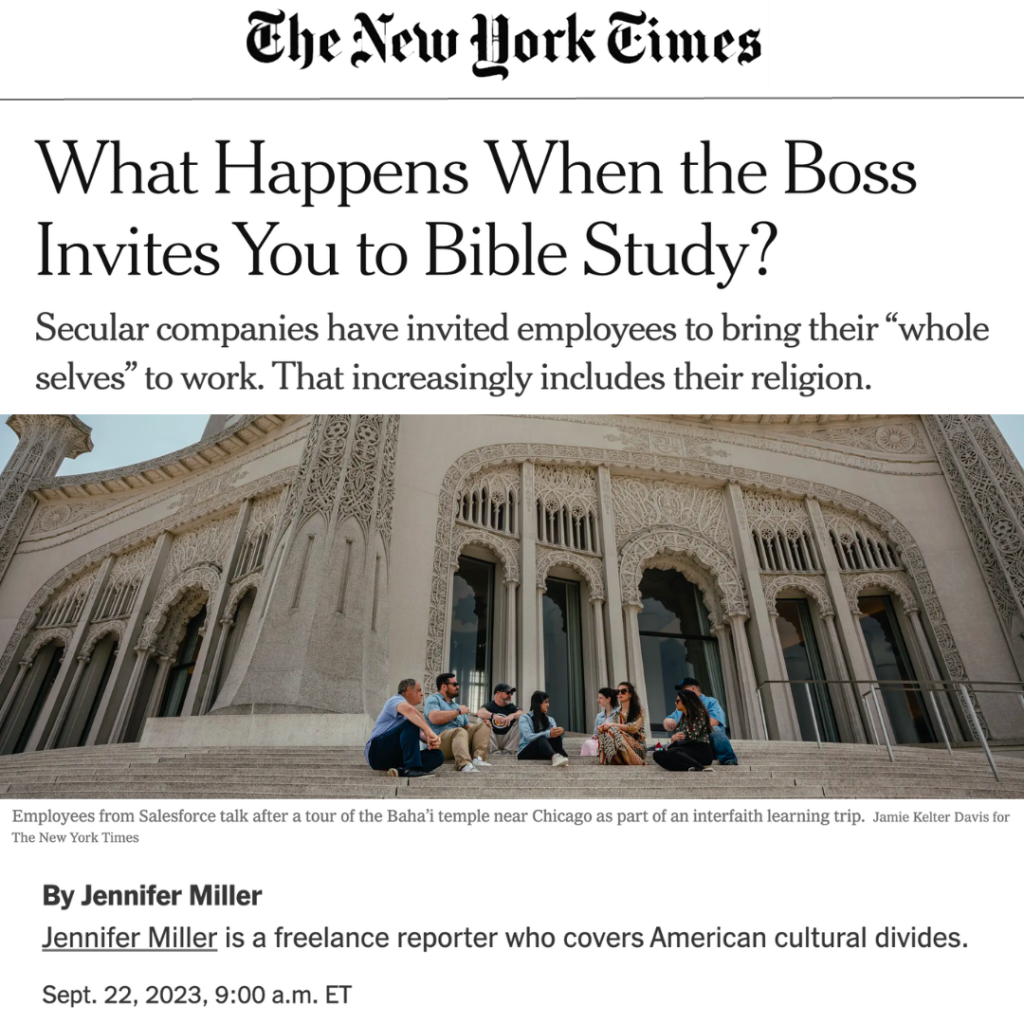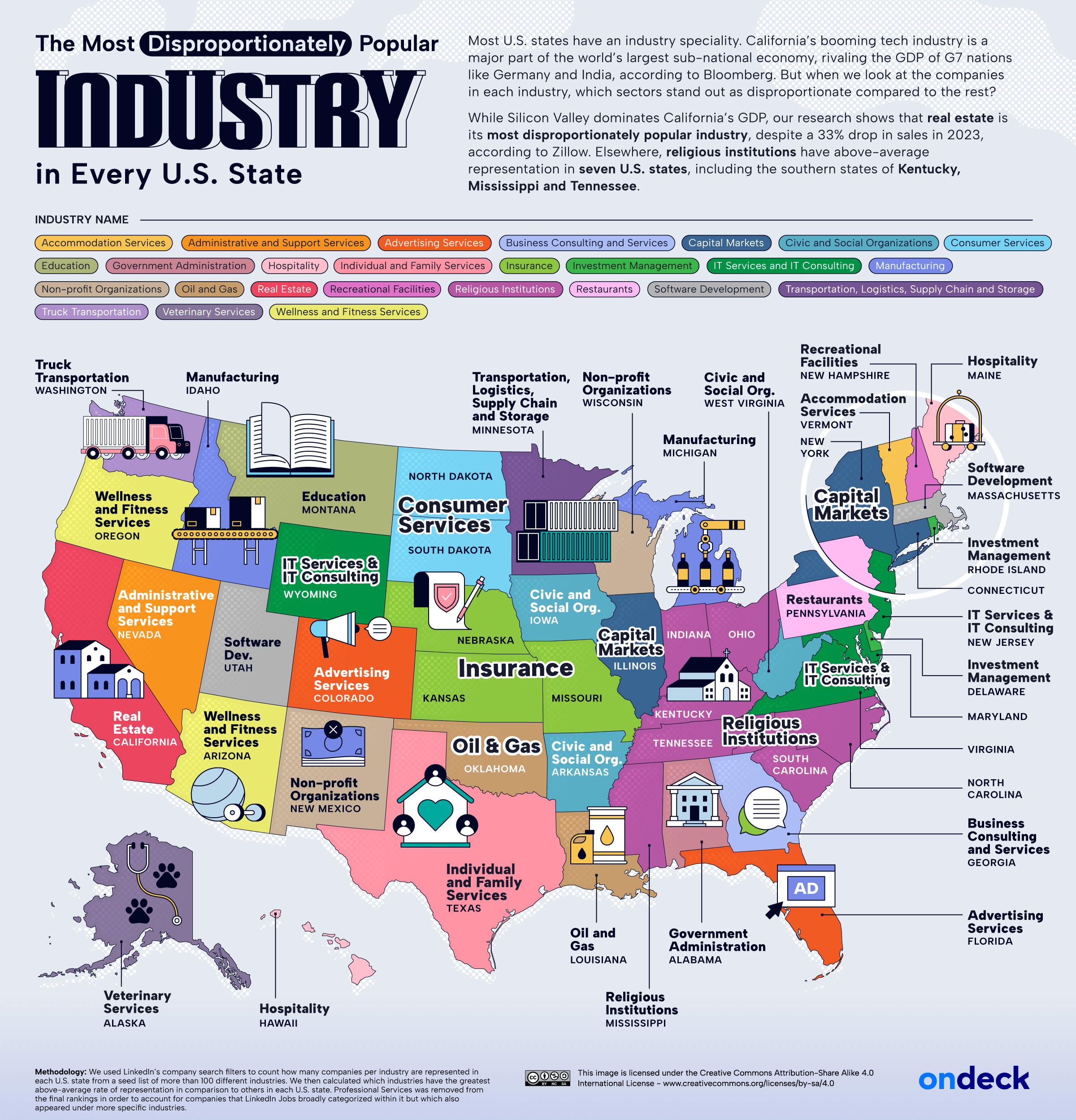

By Brian Grim (pictured above today with Dr. Vishwanath D. Karad, Founding President and Director General of the MIT World Peace University in Pune, India)
Plenary Remarks delivered at the MIT World Peace Dome on the occasion of a statue of Dr. Karad being unveiled in celebration of his contribution to science, spirituality and world peace.
At the start, I would like to ask all the students here to stand up [about 2,000]. I begin by “felicitating” you because Dr. Karad’s efforts are all aimed at raising up the next generation to take his great ideals of interfaith collaboration and engagement, and our differing spiritualities, and integrate them with our science and even business. As all of you head eventually to jobs, wouldn’t you like to take your spirituality with you and not have to leave it at the door?! Thank you! [please be seated]
At the MIT World Peace University’s inauguration, Dr Vishwanath D Karad said, “In coming years, India will play the role of the knowledge corridor of the world. We have combined science and spirituality to form a new education model. This university has taken its ideals from the path shown, by the forefathers of India, of peace and harmony.”
When Dr. Karad said these words, I don’t know if he foresaw that today India would be one of only four countries to successfully land on and explore the moon. Not only that, but immediately on the heels of that tremendous success, India just launched a mission to monitor the sun. Maybe he did foresee this [did you?].
I am certain that what he foresaw was the role spirituality and science, when working together, bring peace. And the moon landing is evidence that Dr. Karad’s philosophy is not mere speculation, but a truth.
Writing in RNS, the Hindu-American journalist Murali Balaji wrote an article titled “How India’s foray to the moon might help faiths get along here below: The success of the Chandrayaan-3 is a chance to build a more inclusive nation.”
Indeed, some have estimated that a billion prayers from Christians, Hindus, Jains, Muslims, Sikhs, and more accompanied the successful landing of India’s Chandrayaan-3 spacecraft on the lunar surface on Aug. 23.
How many of you here today prayed for the success of India’s moon mission? [nearly all 3,000 people raised their hands!]
As a Catholic Christian, I was especially heartened to hear that the Catholic Bishops’ Conference of India celebrated, saying: “The progress made by our scientists and engineers in the field of space research is truly commendable and fills our hearts with pride.” Archbishop Andrews Thazhath, the conference president, also said that “the efforts of the [Indian Space Research Organisation] (ISRO) and the entire team behind the project serve as an inspiration to the entire nation.”
Journalist Murali Balaji further noted that “The successful landing of India’s Chandrayaan-3 spacecraft on the moon’s unexplored south polar region — making India just the fourth country to reach the moon — fostered an immense sense of national pride, among Indians and among the Indian diaspora around the world. India’s collective religiosity was on display in the days leading up to and in the moments after the culmination of the Chandrayaan-3 mission. Congregants at Hindu and Jain temples, mosques, Sikh gurdwaras and Christian churches prayed for a successful landing. Even as religious tensions in different parts of India continue to simmer and flare up, it was a remarkable example of unity. Indian Prime Minister Narendra Modi also hailed the landing as a moment for all Indians, a refrain echoed by his political rivals and critics.”
Balaji said, “here’s an opportunity for Indians and their counterparts in the diaspora, regardless of their faith or their politics, to re-engage with one another … The pride that Hindus, Muslims, Jains, Christians, Buddhists and Sikhs feel at this shared accomplishment should make us all open to working together in the future.”
Indeed, the moon landing is evidence that Dr. Karad’s philosophy is not mere speculation, but a truth. For sure, [the] Union of Science and Religion [or] Spirituality alone will bring Peace and Harmony to the entire Humanity”
India, the world’s most populous country, is also one of the most diverse. A core philosophy in India is Vasudhaiva Kutumbakam, which is loosely translated into English as “One Earth • One Family • One Future.” It is the theme for this year’s G20 hosted by India and prominently featured in the G20 logo (above) in Devanagari script and English.
One of the tremendous socio-economic assets of India is it’s cultural and religious pluralism and diversity. Perhaps no phrase captures this more fully than “Vasudhaiva Kutumbakam,” “The World is One Family.” From Gandhi and Nehru to Modi, India’s leaders have evoked the universal spiritual concept of Vasudhaiva Kutumbakam, taken from the Maha Upanishad, to elucidate the country’s national and global outlook.
As we gather on this evening for the opening of the G20 Interfaith Forum, we will do so right here in the MIT World Peace Dome, a seminal accomplishment of Dr. Vishwanath Karad. In addition to advancing the truth that, “Science and spirituality go hand in hand to establish a peace-loving society,” he also places a strong emphasis on the universal spiritual concept of Vasudhaiva Kutumbakam.
In this transformative moment of national success with India’s landing and exploration of the moon, let the upcoming G20 Interfaith Forum held in this very same room be in union with the majority of G20 countries getting it right. Let’s here embrace Dr. Karad’s perspectives that Vasudhaiva Kutumbakam, “One Earth • One Family • One Future” and embrace the universal truth that “[the] Union of Science and Religion [or] Spirituality alone will bring Peace and Harmony to the entire Humanity.”
Finally, next month in New Delhi, also inspired by Dr. Karad, we are taking his transformative message to a wider audience of business leaders at the Dare to Overcome Unity in Diversity business diversity conference at the New Delhi Taj Mahal Hotel. If you’d like to learn more today about how business is also a powerful force for interfaith understanding, join us at the breakout panel B this afternoon at 1:30.
Thank you Dr. Karad for this inspiration – your impact is growing and growing.





















